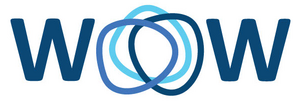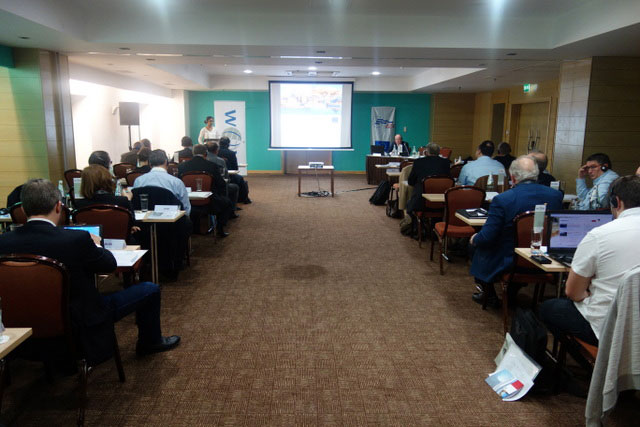As stated on the website of the European Commission: “A Digital Single Market is one in which the free movement of goods, persons, services and capital is ensured and where citizens, individuals and businesses can seamlessly access and exercise online activities under conditions of fair competition, and a high level of consumer and personal data protection, irrespective of their nationality or place of residence.” The aim of the Digital Single Market is to tear down regulatory walls and finally move from 28 national markets to a single one. A fully functional Digital Single Market could contribute €415 billion per year to our economy and create hundreds of thousands of new jobs. All the above almost sounds too good to be true. It seems just positive things will come from the DSM. The DSM clearly has benefits for people in general, but one should not discard the possibly negatives for a share of the people.
From 08 – 10 February 2017 Krifa and the World Organization of Workers (WOW) in cooperationwith the European Organization for Workers’ Questions (EZA) and supported by the European Commission organized a seminar titled “A connected Digital Single Market and change of work. What will be the effect for consumers, employees and trade unions?”. The focus of the seminar was on the implications of an ever increasing digital world of work. It was held in St. Julians, Malta and was attended by 44 persons (including experts and technical support) from thirteen EU Member States and Candidate Member States participated in the seminar.
Ms. Sonia Jemmotte, Policy Analyst, DG Employment, Social Affairs and Inclusion, European Commission (Belgium) opened the seminar by stating that there is a theoretical relationships between ICT and labour. On the one hand there is the substitution effect (capital-labour substitution = ICT-driven innovations such a robots directly substitute human occupations = machines replacing labour) on the other the compensation effect (positive impact on employment = new opportunities and demand = innovation leads to commercialization of new products and demand for new equipment). The point-of-view of the European Commission in general is that there will be an increase of jobs. Others, however, say that many jobs will get lost (47% by 2020 in the US).
Hon. Claudio Grech, Member of Parliament of the Nationalist Party in the House of Representatives of Malta and Shadow Minister for Economic Affairs (Malta) stressed that digitalization should be harmonized and that there should be stronger incentives for an investment in digital infrastructure. “Digitalization cannot just be a technological development. One should also look at the social impact.” The challenge is education and focusing on a strong innovation policy. This will be pivotal and something that trade unions and governments will have to push for and focus on. If not we will end up with people lacking the necessary skills, thereby creating division in society.
Ms. Dr. Barbara Angleitner, Institute for Advanced Studies, Group Security, Inclusion & Social Dialogue (Austria) partly agreed with what the earlier speakers stated, stressing that “Structural change due to digitalization is not reliably predictable”. Technological progress will change jobs and jobs will be lost yes, but new ones will also be created. The demand for routine and manual tasks will diminish, but there will remain a demand for high-skilled tasks, problem-solving, and interpersonal skills. Of course this may cause a gap between those who are digitally skilled and those who are not.
This was agreed upon by Mr. Norbert Klein, Seminars and Research European Centre for Workers’ Questions – EZA (Germany). Education/training will gain more importance in a digitalized world of labour. One will have to continue studying to remain attractive. But it will increasingly affect the life of workers and their families. These socio-ethical considerations should not be lost of sight.
Mr. Josef Vella, Chief Executive Officer of U?M Voice of the Workers (Malta) stated that “it is undeniable that the employment landscape and job market is changing significantly whilst the demand is shifting to different kinds of work. Technology does progress rapidly and wealth is created but there is no guarantee everyone will benefit. Therefore it would be better to race with the machine than against it.
During two Breakout sessions (Breakout session A: Digitalisation and robotisation ask for employagility! and Breakout session B: The digital Labour market – opportunities and challenges for the workers) the participants discussed in groups their expectancies, fears etc. regarding the increasing implications of digitalization. Whereas there is a general uncertainty of what is coming there are also many who see the positive side of these developments.
Ms. Ivette Schuitema, Community Specialist and Project Leader of Je Achterban, CNV Vakmensen (Netherlands) in her presentation focussed on some of the positive sides of digitalization. Many unions still search for a connection with people and possible new members through the traditional way. In her contribution titled ‘Our online community: A way to raise engagement for collective labour agreements’ she stressed the importance of using all technological tools available to become more visible. The online community is a means to attract potential members, stay relevant and also be visible for non-members.
Mr. Gejtu Vella, Director People at Work Consultancy (Malta) said that “Technology is changing the world of work and reshaping labour markets. These changes have also had significant implications for employment. There is consensus out there that technology will complement workers in every job of the future. Some of today’s jobs will likely be substituted by technology. This means that the jobs of the future will be either digital jobs or jobs that use digital tools. The elimination of specific types of occupations does not mean that those many people will be out of work. This is because some of those who were working in those occupations will transition successfully to other jobs. It is also because new occupations will exist in the future that might not exist today.”
Mr. Søren Fibiger Olesen, President Krifa (Denmark) stressed that ‘digitalisation, automation, and the sharing economy will have a huge impact on the labour market of the future. It will change all sectors, at all levels. We cannot stop this development – so it must be regulated and controlled. As responsible trade unions, we cannot just let market forces control development. We must be proactive and engage in dialogue with employers and governments regarding necessary regulation, to create the necessary balance between market forces and regulation. If we do not, we will be abandoning our responsibility to the weakest and most vulnerable in our society.’ This also includes the ethical considerations involved. ‘It is important that we as employees can continue to have confidence that the systems are made for people and not vice versa.’
Digitalization is here and will not leave. We need to realize this and prepare ourselves to that. By continuous education and by defining the rules. This will be a constant process since the developments go so fast. But we should alsorealize that the technique should serve Man and not the other way around. Finding the right balance will be a challenge, but we succeeded during previous Industrial Revolution so let us stay positive and find solutions to this one too. This should be a common aim for all.
for pictures click here





